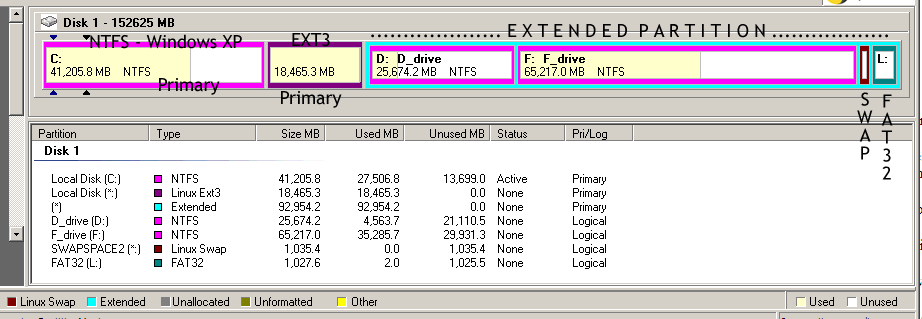Rad wrote on Jul 28th, 2008 at 11:54pm:Meh. While this is somewhat true, people have different learning styles; I don't need to push myself this way, for instance. Never have, never will. Hell, I'd learned about 6 high-level computer languages, two assembly languages, a couple of OS's, and taught myself calculus before I was 15 (and done some other interesting stuff, too). And frankly, that was just being on autopilot.
However, that quantity is not what matters - the real issue in learning is the quality: what particular things you seek to learn.
Much knowledge is mere trivia. Inessential, and largely irrelevant. Even after 30 years, I can still remember things like "3D0G" and the rough structure of 6502 assembly from the Apple ][. We all accumulate a lot of this kind of cruft, but it mostly does nothing for us because it's not a guide to anything else.
Other knowledge has real power. The most powerful kinds of knowledge give you
leverage, because they help you solve all kinds of other problems hugely faster. These things are the kind of knowledge that are worth seeking, and one of the ways that people of very high mental ability end up being so disproportionately effective (e.g. the oft-observed one or more orders of magnitude difference in software developers) is that they are very purposeful and specifically go seeking for this kind of knowledge.
Trigonometry, calculus, game theory, systems theory, mechanics, economics, ... things like that (and there are plenty more examples) are knowledge with leverage. Know those, and you know where to stand and how to push
just so and move a mountain.
Now, some of this is dictated by cognitive style; some people are what are (in the terminology of a man called Piaget who you should look up)
concrete thinkers whose minds are full of things (this kind of person particularly loves analogies, because it's a method of reasoning in terms of chains of specific things), others are
abstract thinkers who prefer to think not in terms of things but in terms of
kinds and
rules and
generalizations, and these generalizations are where the leverage tends to be.
Now, that doesn't mean abstract style is necessarily better; I had many wonderful years working for a gentleman who was the most doggedly concrete thinker I've ever known (whereas I'm very abstract). He could conceive all kinds of useful practical ideas which would never occur to me because I was completely incapable of perceiving the need for them - but if he explained them to me, I would know how to make them real in the world of software, which was a mystery to him.
Yin and yang. Gotta have both. Anyway, I digress. Back to virtualization.
It matters because it saves you massive amounts of
time, and that time is far too precious a thing to waste. 10 years hence you won't care about what devices you had to struggle with; that's trivia. Virtualization, by giving you the freedom to completely safely attempt all kinds of things you wouldn't do otherwise, and do them vastly more efficiently, gives you leverage.
